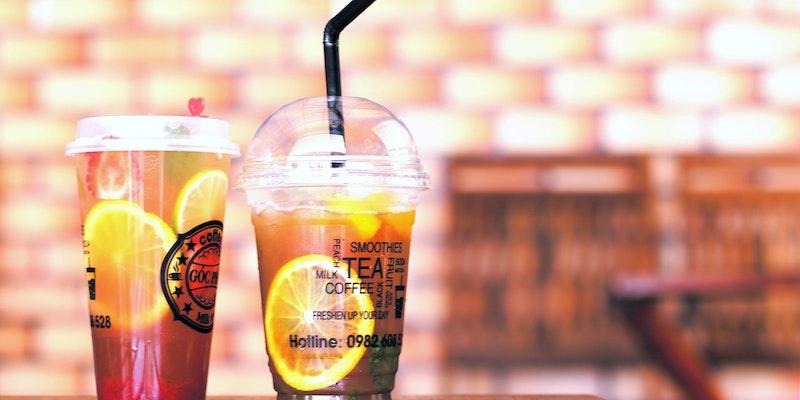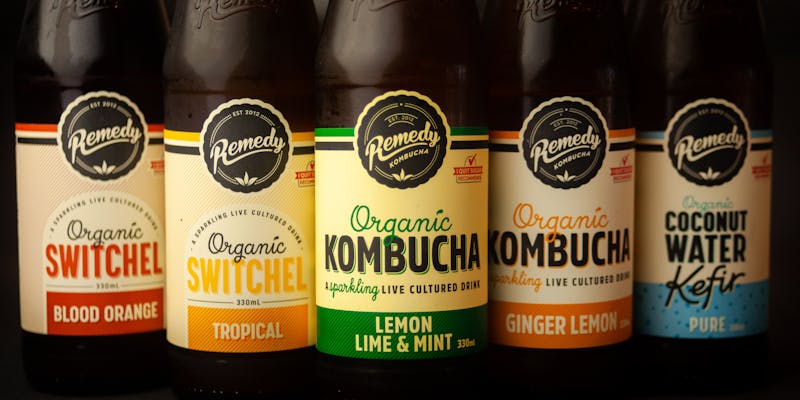Liquid Calories: What You Must Know
Nov 05, 2023 By Madison Evans
We all know that eating more than you burn leads to weight gain. If you burn more than you eat, you lose weight. But what happens when those calories come in liquid form?
Liquid calories are derived from beverages, excluding plain water, unsweetened black coffee, and herbal teas. The problem arises when these beverages contribute significantly to your daily caloric intake without offering the same fullness or satiety that solid foods provide.
Liquid Calories
Beverages, even those that seem healthy, like fruit juices, can quickly add up in calories. For instance, a single serving of orange juice can contain around 100 calories and between 18-21 grams of sugar. Despite this, it offers minimal fullness, often compared to taking a deep breath.
Liquid Calories and Satiety
Here's food for thought: why do we feel fuller after eating a sandwich than drinking a large soda, even if the calories might be comparable? Solid foods have a unique way of communicating with our brains. As we chew and swallow, our body acknowledges the intake, releasing hormones that signal satisfaction. Ghrelin, often dubbed the "hunger hormone," decreases when we consume solid food, signaling our brain that we're full.
On the contrary, liquid calories bypass this system. You might chug a high-calorie beverage and still feel your stomach rumbling. This isn't a figment of your imagination but a physiological response. When you sip on beverages, particularly those rich in sugars and devoid of fiber, the liquid calories vs solid calories battle becomes evident. Solid foods usually lead, making you feel fuller for longer.
The concern escalates when considering the broader implications on public health. Our modern lifestyles often favor convenience, leading many to opt for quick, on-the-go beverages. Over time, this penchant for high-calorie liquids, without reducing solid food intake, can be a formula for unintentional weight gain. The growing global waistlines might have more to do with what's in our cups than we previously assumed.
Obesity isn't just about appearance but has profound health implications. Liquid calories, mainly from sugary drinks, have been spotlighted as contributors to this pressing health issue. When we compare liquid calories vs solid calories in terms of satiety, the liquids typically don't match up, leading to overconsumption.
High Calorie Liquids: Not All Are Bad

When choosing drinks, we must remember that not all are created equal. Regarding calorie-rich drinks, sugary sodas may come to mind, but many others have nutritional benefits. Nutrient-packed drinks can save muscle-builders.
Protein shakes, for example, serve as a quick source of energy and nutrients, especially after a strenuous workout session. Their caloric content, primarily derived from protein, supports muscle repair and growth. Unlike a large meal that can leave you feeling overly full and sluggish, these shakes provide the nutrients needed without the heaviness.
Furthermore, other high calorie liquids like liquid meal supplements and yogurt drinks also play a crucial role in muscle development. They supply the body with essential vitamins and minerals, ensuring it doesn't lack any vital nutrients during intense physical training.
Research has consistently shown the positive impact of liquid protein on muscle growth. In specific studies, athletes who combined resistance training with regular protein supplementation witnessed notable muscle development in a relatively short timeframe.
Liquid Calories vs Solid Calories: Digestion Differences
The body processes liquid and solid calories differently, impacting our digestion and overall satiety. Liquid calories, primarily those high in sugars, are quickly absorbed into our bloodstream. This rapid absorption can lead to sharp increases in blood sugar levels, often followed by a quick drop, leaving us feeling hungry again in no time.
In contrast, solid foods, especially those packed with fiber like fruits, undergo a more extended digestion process. This slower absorption ensures a gradual release of sugars into the bloodstream, which helps maintain stable energy levels and staves off hunger for extended periods.
Consider peanut butter, a favorite among many fitness enthusiasts. Packed with both protein and fiber, peanut butter takes time to digest. This gradual process ensures a steady release of energy, making it an excellent choice for sustained vitality and stable blood sugar.
To better grasp the concept, consider the difference between liquid IV calories from a medical supplement and sugary soda. While both might provide the body with energy, the former is designed to be nutritionally balanced, while the latter can cause rapid fluctuations in blood sugar.
Liquid IV Calories and Their Role

The beverages we drink often carry more than flavor – they can have significant calorie counts. While it's common knowledge that drinks like sodas can be culprits in weight gain, not every beverage with a high-calorie count is inherently flawed. Consider liquid iv calories, for example.
These are not everyday drinkable calories but refer to intravenous nutritional solutions utilized in medical environments. These specialized solutions cater to patients who, for various reasons, cannot take in solid foods. These calories provide vital nutrition for recovery and sustenance. All calories aren't created equal, and context matters. While soda may not be ideal for daily consumption, liquid IV calories have their place in healthcare.
High calorie liquids come in various forms, but it's crucial to discern which ones are beneficial and are merely sugar traps. The distinction between liquid calories vs solid calories is also vital in this context. Solid foods typically have fiber and other components that provide satiety, while many liquid sources don't, making them less filling but equally calorie-dense.
The Role of Liquid Calories in Muscle Building
Now, moving away from medical settings and stepping into the gym, let's discuss another aspect where high calorie liquids shine: muscle growth. Muscle building isn't just about lifting weights; it requires fuel, specifically calories. For individuals new to the bodybuilding scene or those who need to meet high calorie goals, consuming enough food might seem like a mammoth task. This is where liquid calories enter the picture, not as villains but as helpful allies.
Liquid meal supplements, yogurt drinks, and protein shakes are potent tools in the muscle-builder's arsenal. Why? They provide dense nutrition without making one feel overly full, a common challenge when consuming large amounts of solid foods. A notable mention is the post-workout shake, lauded for its quick absorption. After an intense workout, this shake acts swiftly, promoting protein synthesis and fighting off muscle tissue breakdown.

An Overview of Fitness Trends: Navigating a Healthier Tomorrow

Discovering Squat Variations: 7 Alternatives to Barbell Squats

Kombucha: 5 Powerful Health Benefits of This Probiotic-Rich Beverage

The Impact of Weighted Hula Hoops: Are they Effective and Safe?

Gentle Fitness: Embracing Low-Impact Exercises for a Healthier You

What Causes Tendinitis and How Can You Find Relief?

Essential Strength Training for Women Over 50

Essential Guide to Resuming Exercise Postpartum with Assurance and Vigor

Pull-up Breathing techniques: A Guide to Proper Technique

Mastering the Art of Foot Care: Using a Pumice Stone for Soft Feet

Are Electrolyte-Loaded Sports Drinks Healthy: An Understanding
